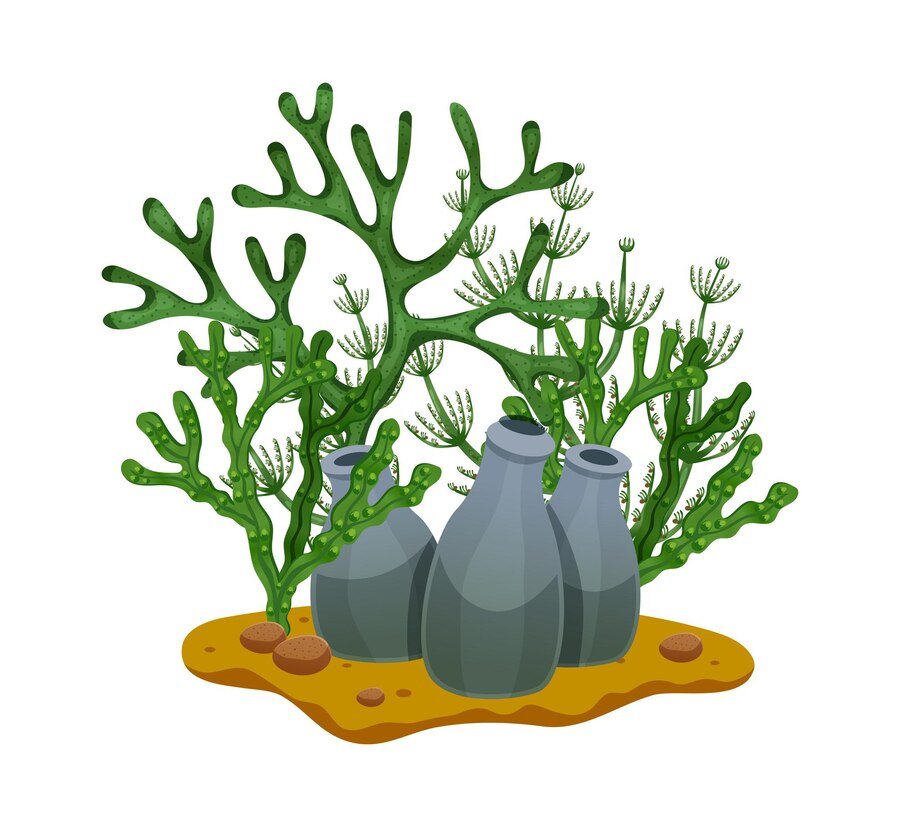Organic Sea Moss: Everything You Need To Know

Sea Moss!
Do you know what sea moss is?
Have you heard about it from some of the global celebrities like Kim Kardashian, Haile Bieber, and Cardi B?
Are you interested in learning about why these big names are endorsing it?
Wait no more!
We have curated a detailed guide into the world of organic sea moss.
Reading through the guide would help you understand its importance and why you must include it in your routine right away.
So, without further ado, let’s get started.
Organic Sea Moss: What Is It?
Organic Sea Moss is a seaweed or algae growing in waters along the coasts. It primarily grows along the rocky Atlantic coast between North America and Europe.
It grows in multiple colours, such as different shades of green, purple, red, yellow, purple, black, brown, and red.
The Organic Sea Moss is a rich source of minerals and proteins. In addition, it contains fiber and plant chemicals that promote health and overall wellness.
| Some Key Facts – Alternate NamesSea moss, Irish moss, Chondrus crispus, C. crispus, red seaweed, red algae Legal Status It is legal to use as a food or medicine. Suggested DoseIt may vary based on the iodine content that your body may require. |
Sea Moss: Rich In –

Besides the nutritional value, Organic Sea Moss can be touted as a superfood because it is vegan and a gluten-free source of several nutrients.
Here is a list of the nutrients that you can benefit from five grams—about one-third cup—of dried seaweed:
- Vitamin C: 0.25 mg
- Vitamin K: 1.25 mcg
- Vitamin A: 0.7 mcg
- Calcium: 18.6 mg
- Sodium: 28.8 mg
- Magnesium: 24.1 mg
- Zinc: 0.4 mg
- Choline: 3.2 mg
*(mcg) micrograms
(mg) milligrams
A 4-tablespoon (20-gram) serving of raw sea moss provides the following:
- Calories: 10
- Protein: 0.5 grams
- Total fat: 0 grams
- Total carbs: 3 grams
- Fiber: 0.5 grams
- Total sugar: 0 grams
- Calcium: 1% of the DV
- Iron: 10% of the DV
- Magnesium: 7% of the DV
- Phosphorus: 2% of the DV
- Zinc: 4% of the DV
- Copper: 3% of the DV
*(DV) Daily Value
Like any other sea veggie, Organic Sea Moss is also an excellent natural source of iodine (necessary for thyroid health).
Sea Moss: Benefits –
- Enhanced Skin Health:
Sea moss possesses properties that aid in healing various skin conditions such as eruptions, wounds, scabs, and burns.
Its natural components can help reduce the appearance of premature ageing signs, promoting a more youthful complexion.
- Immunity Boosting Properties:
The presence of essential nutrients in Organic Sea Moss aids in detoxifying the body by eliminating heavy metals, pollutants, and carcinogens, thereby bolstering the immune system.
It also exhibits antimicrobial properties, inhibiting the growth of pathogenic viruses and yeast, thus fortifying the body’s defense mechanisms.
- Anti-inflammatory Effects:
Sea moss effectively reduces inflammation, making it beneficial for individuals suffering from inflamed joints or arthritis.
- Thyroid Health Support:
Rich in iodine, Organic Sea Moss benefits individuals with hypothyroidism, a condition characterized by insufficient thyroid hormone production.
Its iodine content supports thyroid function and helps regulate metabolism, but it’s crucial to seek professional advice before using sea moss for managing thyroid conditions.
Precautions –
If you fall under the following sectors, you must avoid using sea moss in your routine –
- Pregnant Women:
Pregnant or breastfeeding women should exercise caution with sea moss consumption due to its high iodine content.
Excessive iodine intake can have adverse effects on fetal development, potentially harming the unborn baby.
- Allergies:
Individuals allergic to sea moss or its components, such as carrageenan, should avoid its use to prevent allergic reactions.
Careful examination of product labels is necessary to ensure avoidance of potential allergens.
- Breastfeeding Women:
Sea moss consumption by breastfeeding mothers can lead to elevated levels of iodine in breast milk.
Excessive iodine intake through breast milk can adversely affect the nursing baby, potentially causing thyroid disorders like hypothyroidism or hyperthyroidism, particularly in newborns.
Should You Take Sea Moss Supplements?
You can find sea moss supplements in several forms, including capsules, gels, powder, and gummies. The form is ineffective as long as you use a moderate amount of sea moss in your routine. Raw sea moss does have a little fishy taste, the rest of the supplements are usually tasteless.
Ultimately, it is recommended to consult your doctor or physician before adding any sea moss supplements to your diet.
Bottom Line
Sea moss, a sea vegetable similar to seaweeds and sea algae, is mostly harvested for its carrageenan.
It is known to be effective in several ways. However, there are still some safety concerns to look after.
For the same reason, make sure the usage of the sea moss is as per your doctor’s guidance!






